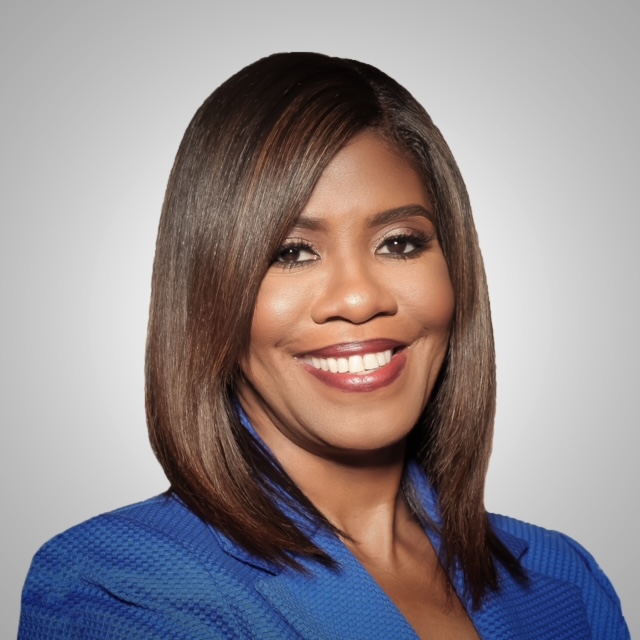eMed’s acquisition of Babylon Health’s UK business in August marks the young healthcare technology company’s first foray outside the US market. Maria Davies talks to co-founder and CEO Patrice Harris, UK managing director Charlie Howard and president of global clinical services Tim Rideout about primary care, prevention and the company’s plans for the new UK business
US companies tend to keep a low profile when they enter the UK healthcare space, particularly when that entrance involves the delivery of NHS services. Not so eMed. The Miami-based digital healthcare technology company put up not one, but three of its top executives when HM requested an interview following its acquisition of UK telehealth pioneer Babylon Health in August, including UK managing director Charlie Howard, president of global clinical services Tim Rideout and its co-founder and CEO Dr Patrice Harris.
Admittedly, it would be difficult for the company to keep such a high-profile acquisition low key given the column inches Babylon’s collapse has attracted in recent months. But I also get the sense that Harris and her team are genuinely excited by the potential synergies in the UK and US businesses and keen to shout about the possibilities for development, particularly in the area of chronic disease management, which is a growing problem for health systems on both sides of the Atlantic.
‘We come to the UK with great humility and will be driven by the experts in the UK,’ Harris tells HM. ‘But more broadly speaking, both our countries share the burden and mortality of persons with chronic disease coming to the attention of the medical system later in the disease process.’
Trained to be a physician at West Virginia University School of Medicine, and a child and adolescent psychiatrist at the Emory University School of Medicine, Harris has a long-held interest in early intervention and preventative medicine. She became involved in policy-setting with medical associations in the US early on in her career, later leading the American Medical Association’s (AMA) Opioid Task Force and serving as its first African American woman president between 2019 and 2020.
‘Through my involvement and leadership of the AMA, I was able to talk to my colleagues from around the world and what I do know is that we can learn from one another, but the solutions have to be unique. eMed comes here with humility because our systems are different and we respect and appreciate the NHS, so it is not the case that we are coming and saying do as we do in the US,’ she says.
Harris was president of the AMA as the pandemic hit and originally helped establish eMed to provide a ground-breaking at-home Covid-testing solution at a time when tests were not only in short supply, but virtually only available at point-of-care locations.
‘Here in the US, the very communities that were disproportionately impacted by Covid – which in the US were black and brown communities and communities with chronic health conditions and other risk factors – did not have access to testing,’ she says. ‘So, we began speaking to some folks about how we could use technology to solve the problem and out of those conversations we founded eMed.’
The company developed a digital platform with coaching staff who could, 24/7 and on-demand, guide patients through the testing procedure and under an emergency use authorisation from the FDA. Some of its first customers were state and local governments whose first responders needed to test to know that they weren’t infectious when they went out to see potentially vulnerable patients. Ultimately, the novel eMed at-home test solution also provided rapid and life-saving access to oral antivirus medications and supported the re-opening of international air travel.
However, Harris explains that Covid was the proof-point for an idea that had been germinating for some years to provide a digital platform that would improve access to healthcare services and provide the kind of early intervention that prevents bigger and more costly health issues from developing downstream. From the outset, the company had plans to expand the platform to chronic conditions in the belief that a digital ‘front door’ could help achieve earlier diagnosis and, crucially, faster access to care.
It now offers a range of off-the-shelf diagnostic, screening and urgent care packages, such as UTIs, Strep infections and Lyme disease kits, as well as a comprehensive weight loss package, which includes access to GLP-1 medications and 24/7 access to a specialist coach.
At the same time, Harris adds, the company has always had its eye on international expansion.
‘Even though our systems and our people are different, we both have problems with chronic conditions where earlier diagnosis can help,’ she says. ‘As we began to think about opportunities to expand, we saw the Babylon UK team and were excited about their digital primary care, access and commitment. And it was that shared commitment to patient care, to best patient outcomes – right care, right patient right time – and intervening as early as possible using technology to expand access that led us to acquire UK Babylon.’

To date, Babylon users have seen few changes since eMed took over the company. Rideout was general manager at Babylon before taking over as president of global clinical services for eMed in September.
Integration, he says, has been swift, partly because of existing synergies. The UK business has retained its own technology and engineers alongside its clinical workforce but, Rideout explains, in future patients will see the ‘layering on of new services’ as eMed uses that diverse workforce to deliver some of the service models developed in the US.
‘We’ve learned a lot from what eMed has done in the US and tailored it to make sure it’s entirely appropriate for the UK system,’ he tells HM. ‘There are absolutely differences in the way we pay for services and the way they are organised, but actually great clinical care is great clinical care wherever you are. And the evidence base is really clear that if you provide support to patients who have a chronic condition, their compliance with their medication regime and their exercise regime is significantly higher.’
Upstream investment
Although still early days in the UK, eMed does have plans to begin rolling out a weight management programme for UK patients. It is yet to announce others, but Harris said that in the US it was in the early exploration of packages for mental health and substance use disorders.
Managing director and tech start-up entrepreneur Charlie Howard has been brought into

lead eMed’s UK expansion. Initially, he says, eMed UK will focus on extending its existing digital first primary care business to new customers while at the same time expanding into chronic conditions.
The company is also working with its partners to assess whether diagnostic and screening kits might be appropriate for launch in the UK market, but Howard believes the most exciting opportunity for the business lies in tackling obesity and chronic diseases – which carry huge downstream cost burdens in both the public and private sectors.
‘We’re very proud of GP at Hand. It’s the largest single GP practice in the NHS and the fastest growing in NHS history, and we want to expand our offering by looking at what areas we can go into to really help patients. At the same time there is an important part of this business that is private health, whether that’s through insurers or direct to consumer, and we are looking to expand there as well,’ he says.
According to Rideout, it is all about patient care and providing solutions upstream to help reduce the cost of healthcare.
‘What we’re observing at the moment are unprecedented levels of challenge and crisis across the system and I think we have a very firm belief that we can make a significant and valuable contribution to addressing some of those challenges,’ he says. ‘The disease burden that is a consequence of chronic care threatens the stability of the system unless we do something about it. And obesity effectively accounts for some of the biggest issues that are driving patient demand.’
Babylon might have pioneered virtual GP services in the UK when it launched in 2013, but, Rideout says, it was never a ‘pure telehealth’ provider. He describes the company’s move into chronic care as more natural progression than diversification.
‘GP at Hand provides the full range of primary care services, both digital and face to face, including everything that a normal general practice, and it is just a normal practice, provides, so telehealth is only really part of that offer,’ he says. ‘And then when we think about our private clients, we provide more than just remote consultations. With Bupa, we do a lot around referral management, a lot around making sure patients are signposted to the right services. We engage with them to make sure Bupa customers get the most out of their policies. We can see a need within the UK system, both state and private sector, for care that is much more calibrated to meet patients’ needs on their terms. Our view is there is a compelling business case for that.’
The Babylon brand may be somewhat tarnished among investors following its US expansion and what founder Ali Parsa has described as a disastrous IPO, but as one of the UK’s first digital health businesses, it is recognisable and does, according to Rideout, still appeal to customers.
‘We are starting the rebranding, but we are doing it in a very thoughtful and measured way because the Babylon brand was very well liked with patients in the UK. It was very well thought of, and we don’t want to lose that. We want to reassure patients as we move from that brand to branding as eMed, so at the moment we have features of both,’ he said.
Alongside its IPO, Babylon has come in for fierce criticism – both from within and from outside – for overpromising on the capabilities of what has been claimed was its seriously flawed AI chatbot.
Technology as enabler
AI, says eMed, will not be a key feature of its proposition either in the US or the UK. And it is keen to stress the use of technology as the enabler of care rather than as an aim or an outcome in itself.
Rideout says that while in the Babylon world, much was made of AI, it was never really deployed in its UK services.
‘We remain open to AI but it’s not the thing that primarily drives us,’ he says. ‘What we’re interested in is can we provide excellent quality care that’s really accessible using state of the art models.’
It’s a view echoed by Harris. As a physician, she prefers to think of AI as augmented, rather than artificial intelligence – something that can assist rather than replace clinical interventions.
‘There’s promise out there, but we are going to keep clinicians at the centre and use technology to help them take better care of patients,’ she says. ‘And actually, in terms of chronic conditions and other disease states, I can’t think of one that wouldn’t be enhanced by earlier access to care, earlier diagnosis and treatment and the opportunity for earlier intervention.’








 ©2024 All rights reserved LaingBuisson
©2024 All rights reserved LaingBuisson 


